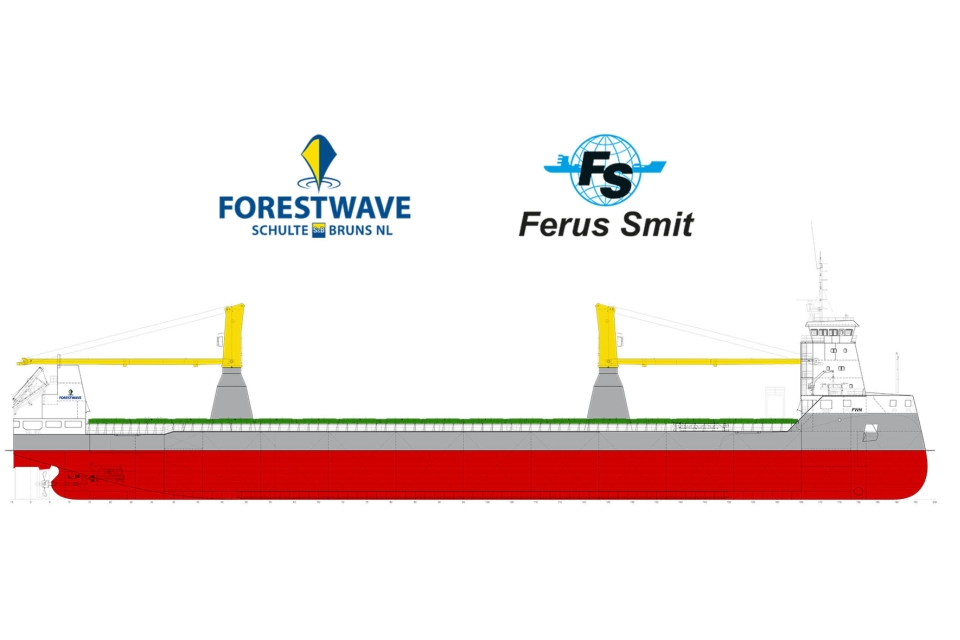ForestWave Navigation has contracted Ferus Smit Shipyards to build two new project cargo vessels of the Ecobox XL type. The Ecobox XL design enables loading and transporting extra-long items, such as wind turbine blades, while at the same time maintaining its good capabilities as a normal general cargo ship.
The design is such that it further enhances its excellent “green” performance with a reduction of the Energy Efficiency Design Index (EEDI) score to a new class reference standard, according to Dutch shipyard Ferus Smit.
Groningen-based ForestWave Navigation Group was founded in 2003 and has been growing rapidly since 2011. Today, they commercially operate 35 multi-purpose (MPP) vessels in the range of 6000 to 12,500 DWT. The two Ecobox XL vessels are the first orders they placed with Ferus Smit.
Also read: Symphony orders new Ecobox XL project cargo vessels from Ferus Smit
Ecobox XL
The Ecobox XL has the deckhouse placed on the fore ship. This gives shelter to the hold and deck cargoes against severe weather conditions and enables oversize deck cargoes to be loaded over the stern. In addition, it features the Ferus Smit bulbless Canoe type bow, designed to reduce fuel costs and better sustained speed with excellent sea keeping behaviour in harsh weather and sea state conditions.
Also read: Ferus Smit launches first NaabsaMax tanker
Other characteristics of the Ecobox XL ships will be as follows:
- Maximum loading capacity about 12.500 DWT;
- Box shaped single hold, including completely movable tweendeck, resulting in large floor space for project cargoes, allowing for loading cargoes with a length of 100 metres on tanktop and 112 metres on tweendecks;
- Two 85-tonne cargo cranes;
- Open top notation;
- Ice class 1A;
- Tier III, 3300 kW main engine, driving a nozzled controllable pitch propeller running in fully automatic combinator mode. The fuel system will also be suitable for bio blend;
- Green Passport;
- ORC waste heat generator integrated in the propulsion system for further reduction of fuel consumption and ultra-low EEDI.
The ships are planned for delivery in 2024/2025.
Also read: A wave of investments in energy awaits project cargo market








